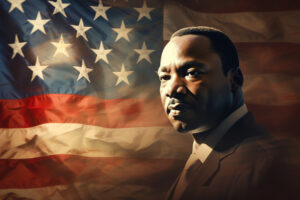Posted by Roberta Grimes • November 02, 2024 • 12 Comments
Human Nature, Understanding Reality
If you’re going to San Francisco,
Be sure to wear some flowers in your hair.
If you’re going to San Francisco,
You’re gonna meet some gentle people there.
For those who come to San Francisco,
Summertime will be a love-in there.
In the streets of San Francisco,
Gentle people with flowers in their hair.
All across the nation, such a strange vibration!
People in motion.
There’s a whole generation with a new explanation.
People in motion, people in motion.
– Scott McKenzie (1939-2012) & John Phillips (1935-2001), from “San Francisco” (1967)
 To be a young member of the American generation that was born in the first two decades following the Second World War was an absolutely confounding experience. And we who were young then knew at the time how disruptive it all was for us. We were being whipsawed by history in ways that felt exciting, perhaps, but also it seemed to be so unfair! And in some ways, being young in the nineteen-sixties felt like falling off the end of what we were pretty sure must have been millennia of stability and gradual progress into what felt like the end of a reasonable and orderly world. We were falling from there into chaos, and with no floor anymore, no rules at all, no concept of where the new floor might be, and no idea about even whether or not there ever was going to be a new floor.
To be a young member of the American generation that was born in the first two decades following the Second World War was an absolutely confounding experience. And we who were young then knew at the time how disruptive it all was for us. We were being whipsawed by history in ways that felt exciting, perhaps, but also it seemed to be so unfair! And in some ways, being young in the nineteen-sixties felt like falling off the end of what we were pretty sure must have been millennia of stability and gradual progress into what felt like the end of a reasonable and orderly world. We were falling from there into chaos, and with no floor anymore, no rules at all, no concept of where the new floor might be, and no idea about even whether or not there ever was going to be a new floor.
 My goodness, do you want to hear about stability? I’ll show you some stability. My grandparents were subsistence farmers in the nineteen-fifties in the United States, and their simple ancestral way of life had not changed much for centuries. When I was small, the bane of my daily existence was a rooster that was almost my own height and weight, and he would chase me whenever I helped my grandmother go into the chicken-coop to gather eggs. My grandfather taught me how to hand-milk a cow. Every holiday turkey of my young childhood was cooked in a black-iron, wood-fired range, and I still will swear to you that you never have had holiday turkeys and pies as good as what that gigantic wood-fired range could produce! Until I was maybe five years old, my grandparents’ telephone was not only a rotary, but it was actually one of those old wooden boxes that were screwed to the wall and had a black cone receiver, with a separate cone to hold to your ear at the end of a cord that hung looped by its side. My grandmother wore work-dresses that she had made from printed cotton chickenfeed bags. Her idea of a small child’s special treat was half a slice of buttered bread. She had lived through the Great Depression, after all.
My goodness, do you want to hear about stability? I’ll show you some stability. My grandparents were subsistence farmers in the nineteen-fifties in the United States, and their simple ancestral way of life had not changed much for centuries. When I was small, the bane of my daily existence was a rooster that was almost my own height and weight, and he would chase me whenever I helped my grandmother go into the chicken-coop to gather eggs. My grandfather taught me how to hand-milk a cow. Every holiday turkey of my young childhood was cooked in a black-iron, wood-fired range, and I still will swear to you that you never have had holiday turkeys and pies as good as what that gigantic wood-fired range could produce! Until I was maybe five years old, my grandparents’ telephone was not only a rotary, but it was actually one of those old wooden boxes that were screwed to the wall and had a black cone receiver, with a separate cone to hold to your ear at the end of a cord that hung looped by its side. My grandmother wore work-dresses that she had made from printed cotton chickenfeed bags. Her idea of a small child’s special treat was half a slice of buttered bread. She had lived through the Great Depression, after all.
 But I digress. My point here is that until the late nineteen-sixties, things in society really didn’t change quickly, or even change much at all, through world wars and national economic depressions and whatever else might happen in the world, and nor did anyone expect things to change. Social assumptions stayed comfortably the same. Girls still were mostly wearing dresses to school, and they prudently still saved themselves for marriage. The world was still carefree and simple, and I look back now, and I try to pinpoint the precise moment when everything in the world began to change. And for me, I think that it must have been one late-fall Saturday afternoon when I was a college sophomore. We were sitting around the parlor in Northrop House at Smith College and talking with the boys that they were always bussing in on weekends, because Smith was an all-female school. I got to arguing with this guy about politics; and forever after, that one afternoon has stuck fast in my mind. I was insisting to him that the U.S. had wised up now, and we were never again going to become involved in another stupid war. But he said, “Oh, no no! You watch Vietnam! There is going to be another war. You mark my words!” That was the first time that I think that I ever had heard anyone say the word “Vietnam.” And I vividly recall that moment. I can remember where we were and what he said, to this day.
But I digress. My point here is that until the late nineteen-sixties, things in society really didn’t change quickly, or even change much at all, through world wars and national economic depressions and whatever else might happen in the world, and nor did anyone expect things to change. Social assumptions stayed comfortably the same. Girls still were mostly wearing dresses to school, and they prudently still saved themselves for marriage. The world was still carefree and simple, and I look back now, and I try to pinpoint the precise moment when everything in the world began to change. And for me, I think that it must have been one late-fall Saturday afternoon when I was a college sophomore. We were sitting around the parlor in Northrop House at Smith College and talking with the boys that they were always bussing in on weekends, because Smith was an all-female school. I got to arguing with this guy about politics; and forever after, that one afternoon has stuck fast in my mind. I was insisting to him that the U.S. had wised up now, and we were never again going to become involved in another stupid war. But he said, “Oh, no no! You watch Vietnam! There is going to be another war. You mark my words!” That was the first time that I think that I ever had heard anyone say the word “Vietnam.” And I vividly recall that moment. I can remember where we were and what he said, to this day.
 That must have been in the fall of 1966. By that next spring, that nameless Yalie was proving that he had been as good as his word, because the country of Vietnam was starting to headline most evening news programs. There still was a legal draft in place as a legacy from WWII, so we were beginning to see on many nights the riveting image of helicopters landing half a world away so dying boys that we might have known in high school could be loaded into them while the long grass around them blew in the wash from the helicopters’ blades. Omigod, there was an actual war going on! We had no idea why that war was happening, and it never occurred to anyone in authority that it might perhaps be a good idea to help America’s youth build some sort of patriotic sense around this new war. Not until it was very much too late. The war in Vietnam was right there in our living rooms, it was killing our own friends and brothers, and it made no sense to us at all!
That must have been in the fall of 1966. By that next spring, that nameless Yalie was proving that he had been as good as his word, because the country of Vietnam was starting to headline most evening news programs. There still was a legal draft in place as a legacy from WWII, so we were beginning to see on many nights the riveting image of helicopters landing half a world away so dying boys that we might have known in high school could be loaded into them while the long grass around them blew in the wash from the helicopters’ blades. Omigod, there was an actual war going on! We had no idea why that war was happening, and it never occurred to anyone in authority that it might perhaps be a good idea to help America’s youth build some sort of patriotic sense around this new war. Not until it was very much too late. The war in Vietnam was right there in our living rooms, it was killing our own friends and brothers, and it made no sense to us at all!
 For the supersized and pampered Baby Boom generation, the Vietnam War landed smack on our heads like Defcon One. Conditions were perfect for this situation to become downright explosive. If there had been some actual threat to our country; or if there had not still been a draft, so only volunteers were being harmed; or if the Baby Boom generation were not so young and frisky; and also if it were not a generation more than three times the size of the Silent Generation conceived in poverty that had come right before it; then perhaps young America’s overall reaction to the Vietnam War might not have been so explosive. And also, I think, if the Vietnam War had not been happening in every living room, our reaction might not have been so extreme. But by the summer of 1967, Vietnam death counts and fresh videos of our own dying friends and brothers headed each night’s evening news. And almost right away, crowds of angry and chanting teenagers began to march in the streets.
For the supersized and pampered Baby Boom generation, the Vietnam War landed smack on our heads like Defcon One. Conditions were perfect for this situation to become downright explosive. If there had been some actual threat to our country; or if there had not still been a draft, so only volunteers were being harmed; or if the Baby Boom generation were not so young and frisky; and also if it were not a generation more than three times the size of the Silent Generation conceived in poverty that had come right before it; then perhaps young America’s overall reaction to the Vietnam War might not have been so explosive. And also, I think, if the Vietnam War had not been happening in every living room, our reaction might not have been so extreme. But by the summer of 1967, Vietnam death counts and fresh videos of our own dying friends and brothers headed each night’s evening news. And almost right away, crowds of angry and chanting teenagers began to march in the streets.
Transistor radios were another problem. Now we could carry our music with us. And our music was transformed from rock ‘n roll and the Beatles shyly wanting to hold our hand to full-blown war rage so fast that it made your head spin. By mid-1967, we were hearing Country Joe and the Fish singing “… and it’s 1, 2, 3, what’re we fighting for? Don’t ask me, I don’t give a damn. Next stop is Vietnam! And it’s 5, 6, 7, open up the pearly gates. Well, there ain’t no time to wonder why. Whoopee! we’re all gonna die!” By the start of 1968, war protests had taken over most college campuses, and that included my own. Smith College closed early in the Spring of 1968. We didn’t even hold a graduation.
 Yet despite all of that, as early as the summer of 1967, there was a glimmer of change in the thinking of many young Americans. Our frame-verse is evidence of that change. It’s an invitation song about the 1967 “Summer of Love” in San Francisco, which was a gathering of young people who were already beginning to reject the very idea of wars, and they also were rejecting even the idea of protesting any wars. They were rejecting as well America’s entire culture of wealth and plenty existing side by side with and shockingly carelessness of America’s pockets of poverty; and they were appalled, too, by America’s racist past that still dominated the southern states. Dr. Martin Luther King, Jr. and his brethren had to march there for their personal freedom, even while the Vietnam War was at its height.
Yet despite all of that, as early as the summer of 1967, there was a glimmer of change in the thinking of many young Americans. Our frame-verse is evidence of that change. It’s an invitation song about the 1967 “Summer of Love” in San Francisco, which was a gathering of young people who were already beginning to reject the very idea of wars, and they also were rejecting even the idea of protesting any wars. They were rejecting as well America’s entire culture of wealth and plenty existing side by side with and shockingly carelessness of America’s pockets of poverty; and they were appalled, too, by America’s racist past that still dominated the southern states. Dr. Martin Luther King, Jr. and his brethren had to march there for their personal freedom, even while the Vietnam War was at its height.
 The Boomer generation was beginning to call for a whole new society to be built from the ground up in the United States, and one that was based on nothing but mutual love and peaceful understanding. There are newspaper photos from this period that show young people sticking flowers into the barrels of the rifles of young soldiers who were headed for Vietnam. And of course, there are all those pictures of Dr. King’s marches and his speeches. All of this was happening simultaneously, and it was fertile ground for the always-failed nuttiness of Marxism to take root in America; but most of these young people were too unfocused for any kind of unified movement ever to begin. More and more of them instead were becoming hippies and druggies, individually turning on and tuning in and dropping out. The San Francisco Summer of Love led to Woodstock two years later; after which, Vietnam soon wound down. And soon thereafter, most of the Boomer generation grew up, sobered up, and began their adult lives. Although San Francisco really never has managed to get over that 1967 Summer of Love. And nor, I think, has Roman Christianity.
The Boomer generation was beginning to call for a whole new society to be built from the ground up in the United States, and one that was based on nothing but mutual love and peaceful understanding. There are newspaper photos from this period that show young people sticking flowers into the barrels of the rifles of young soldiers who were headed for Vietnam. And of course, there are all those pictures of Dr. King’s marches and his speeches. All of this was happening simultaneously, and it was fertile ground for the always-failed nuttiness of Marxism to take root in America; but most of these young people were too unfocused for any kind of unified movement ever to begin. More and more of them instead were becoming hippies and druggies, individually turning on and tuning in and dropping out. The San Francisco Summer of Love led to Woodstock two years later; after which, Vietnam soon wound down. And soon thereafter, most of the Boomer generation grew up, sobered up, and began their adult lives. Although San Francisco really never has managed to get over that 1967 Summer of Love. And nor, I think, has Roman Christianity.
 Almost everyone who emails me with spiritual-crisis questions, to this day, is a member of that gigantic Baby Boom generation. Oh, once in a while I will hear from someone in her thirties or forties who has lost a pet, or from someone in his late twenties who wonders if there really is a God. But those are much less common crisis questions. No, as I think about it now, I am realizing that the Vietnam War that caused the brief but violent Sixties youthquake and shook loose forever the Baby Boomers’ trust in every governmental institution, basically began the fall of my whole generation’s trust in every other once-sacred institution as well. And that especially includes Roman Christianity.
Almost everyone who emails me with spiritual-crisis questions, to this day, is a member of that gigantic Baby Boom generation. Oh, once in a while I will hear from someone in her thirties or forties who has lost a pet, or from someone in his late twenties who wonders if there really is a God. But those are much less common crisis questions. No, as I think about it now, I am realizing that the Vietnam War that caused the brief but violent Sixties youthquake and shook loose forever the Baby Boomers’ trust in every governmental institution, basically began the fall of my whole generation’s trust in every other once-sacred institution as well. And that especially includes Roman Christianity.
What the Vietnam War really did was to give to the Baby Boom generation at a very impressionable age not just the freedom to question authority. Even more importantly, it delegated to each Baby Boomer as an individual, and for the first time in human history, something that was a lot more crucial. It gave to every Baby Boomer the clear responsibility to question all authority! That is what the “new explanation” mentioned in our frame verse is. That is why the Baby Boom generation in the United States became a New Man because of the Vietnam War. It freed most of us forever from a belief that any organized government might ever be able to do anything really right.
 I can remember how that felt when it hit me, when I myself first realized what a gigantic and altogether profoundly stupid mistake the entire Vietnam War venture had been. Fifty-eight thousand American boys and men my age died in Vietnam for absolutely nothing! And seventy-five thousand more were disabled and had their whole lives’ dreams destroyed. Pause here and roll those gigantic numbers around in your mind for a moment. And nearly all of them had been drafted into that war, so it is not as if they went to Vietnam by some patriotic choice. I can recall watching all of this gradually dawn on the members of my generation around me. So many young lives destroyed, and all for nothing! We saw then that the governmental emperor truly has no clothes at all. Never again will we be so stupidly trusting! Nor will we ever again be fooled.
I can remember how that felt when it hit me, when I myself first realized what a gigantic and altogether profoundly stupid mistake the entire Vietnam War venture had been. Fifty-eight thousand American boys and men my age died in Vietnam for absolutely nothing! And seventy-five thousand more were disabled and had their whole lives’ dreams destroyed. Pause here and roll those gigantic numbers around in your mind for a moment. And nearly all of them had been drafted into that war, so it is not as if they went to Vietnam by some patriotic choice. I can recall watching all of this gradually dawn on the members of my generation around me. So many young lives destroyed, and all for nothing! We saw then that the governmental emperor truly has no clothes at all. Never again will we be so stupidly trusting! Nor will we ever again be fooled.
 Of course, I had already been primed by Jesus to give up on Roman Christianity, but my doing that was made far easier by this great, profound Vietnam War lesson. Governments of every description are composed of fallible, flawed, and often variously stupid, self-involved, and in some ways perhaps almost venal people. And that includes the people who govern religions as well. Most of those who email me now with spiritual questions are Baby Boomers, and it is remarkable that so many of them frame their first question nearly identically! They say some version of, “I can’t take the church anymore, but I still love Jesus. So, what do I do?”
Of course, I had already been primed by Jesus to give up on Roman Christianity, but my doing that was made far easier by this great, profound Vietnam War lesson. Governments of every description are composed of fallible, flawed, and often variously stupid, self-involved, and in some ways perhaps almost venal people. And that includes the people who govern religions as well. Most of those who email me now with spiritual questions are Baby Boomers, and it is remarkable that so many of them frame their first question nearly identically! They say some version of, “I can’t take the church anymore, but I still love Jesus. So, what do I do?”
 And wonderfully, Jesus has had His answers ready for them for two thousand years in the pages of His Gospels. I can send them PDFs of my books to read, and then I can directly answer their more specific questions, and by now the old Roman religion that does not remotely teach what Jesus taught is falling away. While, more and more, I see people teaching, promoting, and living Jesus’s teachings, even when many of those doing the teaching are claiming Jesus’s teachings to be their own. Jesus really loves that! His original Way is being revived again in so many places, and by so many people, and it begins to feel more and more like the spontaneous people’s movement based in love for all of humankind that those first fed-up young Baby Boomers wanted to begin long ago in San Francisco as their horrified initial reaction to the Vietnam War. Perhaps this is the way that Jesus’s Way always from long ago was supposed to begin?
And wonderfully, Jesus has had His answers ready for them for two thousand years in the pages of His Gospels. I can send them PDFs of my books to read, and then I can directly answer their more specific questions, and by now the old Roman religion that does not remotely teach what Jesus taught is falling away. While, more and more, I see people teaching, promoting, and living Jesus’s teachings, even when many of those doing the teaching are claiming Jesus’s teachings to be their own. Jesus really loves that! His original Way is being revived again in so many places, and by so many people, and it begins to feel more and more like the spontaneous people’s movement based in love for all of humankind that those first fed-up young Baby Boomers wanted to begin long ago in San Francisco as their horrified initial reaction to the Vietnam War. Perhaps this is the way that Jesus’s Way always from long ago was supposed to begin?
Meanwhile, the shop where I now have my nails done is staffed by friendly young Vietnamese ladies. They are lovely, and they speak good English, although they chat together in their native tongue. They seem to bear us no ill will for having destroyed their country with shells and napalm and then abandoned it to the Vietcong. Of course, I tip those girls especially well! And I really think that I ought to apologize to them. But I never can find the words.
For those who come to San Francisco,
Be sure to wear some flowers in your hair.
If you come to San Francisco,
Summertime will be a love-in there.
If you come to San Francisco,
Summertime will be a love-in there!
– Scott McKenzie (1939-2012) & John Phillips (1935-2001), from “San Francisco” (1967)
(Many photos are from Vecteezy.com)
Thank you Roberta for another interesting article!!!
I am baby boomer but grew up in the Netherlands, where the hippy movement was also in full swing; remember Yoko Ono and John Lennon having their sleep-in at Amsterdam’s Vondelpark, which further helped mushroom a slew of spiritual type movements, foreign religions and cultures, like yoga, meditation, Hinduism, mysticism, etc. I was then reading BRES, a spiritual magazine and encountered many new ideas, not rooted in Roman Christianity whatsoever. It was an eye opener and confusing at the same time. It was clear that many young people were breaking away from old traditions and the status quo.
I myself grew long hair and a beard and dressed like a hippy but could not unite with just their protests against the status quo way of life of their parents without a real alternative, without a cohesive, unifying workable answer. That was indeed lacking, and I intuitively felt that the answer had to be spiritually rooted.
The hippy movement was totally scattered; everyone doing their own thing, but still relying on their parents financially, which felt really hypocritical to me. Didn’t do the drugs or free sex. Those were not answers, but protest outlets.
But as a result of these 1960’s, I never became materialistic, never lusted to amass lots of money, but kept the ideals for a peaceful world always in my heart. Till now and till tomorrow, and the day after tomorrow, and so on.
Thanks again! 🙂
Oh my goodness, my very dear Adrian, I have so much going on now that it has taken me a week to get here! Ah yes, my dear, the Sixties really were a very strange time indeed to be young! I didn’t really participate, as many did not, but it was impossible not to be affected by it; at times, it felt as if the world was ending….
It shocks me to know that just a decade before I was born that abortion was illegal. And look at the change that’s happened since then. I remember in high school my group of friends had all planned to stay virgins until married and now my children’s generation thinks it’s unheard of. Wow! How fast everything has changed. I want to live out the rest of my life with Jesus commandments, Put God first and love your neighbor, which will mean also forgiveness no matter what!
Amy,
It’s not clear—Jesus does or does not abide
killing of wombed babies ?
-Rick
My dear, if you will think for one moment, you will know the answer to your question without anyone else having to give it to you!
My dear Amy, I was what was then called “a seven-month baby.” Because abortion was illegal, my parents had to get married, and there were actually three of us in their wedding picture. Much later – I think I was perhaps twenty at the time – I thanked my mother for having me, for marrying my father and raising me. She said, “What choice did I have”? At that instant, my dear, I became rabidly pro-life!!
I can understand abortion to save the mother’s life, but otherwise, why is it not seen to be murder when in fact that is what it actually is?
I didn’t understand reborn until the age of 52. I’m so thankful I know now. Jesus really taught us everything we need to know to get through this life!
Oh my dear beloved Amy, Jesus certainly did, my darling!
Dearest Roberta,
Your account of the 1960s and the experience of Baby Boomers in the US is both very telling and quite moving. You make me wish I had been born a little earlier; Oh, to feel the surge of change and to contribute to the ideals of love and social justice! This surge was felt in many countries around the Western world, including my own far away nation. Yet I was but a child then and have only simplistic memories of these times.
Being born at the end of the Baby Boomer generation, at the start of Generation X, I missed out on so much of the indescribable momentum of the love revolution. However I do not regret the times in which I was born. Personally speaking, I do think there was a reason for the timing of my birth. There must be something I’m meant to do now.
I do feel there is a part to play for any of us who wish to see Jesus’ Way finally come to the fore, free of outdated religious dogma. Looking at human societies in 2024, I can see that The Way is at least as relevant nowadays as it was in the First Century. At least. We have been through fear-bound religious dogma and found it corrosive. We have seen the excesses and mistakes of modern culture and learned that they are self destructive. We know what doesn’t work.
Now, with both extremes seen for the nonsense they are, it is the time for the true Teachings of Jesus to spread enlightenment to humanity as a whole.
As trust in public institutions, politicians, officials and big business drains away we feel let down, even betrayed, by those who should have been true. Hence, we realize, we can only really trust in God.
🙏🏼❣️🌅
Efrem Manassey,
The Sixties were the rise of the
REPTILIAN ( savage ) brain
in each of us. It had been a
very bad, Marxian-driven
movement against sober/civil/
logical living. It was so bad,
we’re still trying to recover
from the
drumbeat “music”
and
abstract art—both product of
the Communist Insurgency
Agency. -Rick
Not sure about any of this….
My beloved Efrem, the late 1960s certainly were an amazing time to be young! I can literally remember thinking at the time that it felt almost like the end of the world, or at least the end of settled culture. Everything really was falling apart!! It felt odd and astonishing, but at the same time there was a kind of “what the hell-ness” to it. There even was a song that said something like that. If this really is all there is, then let’s keep on dancing, let’s break out the booze and have a ball if that’s all there is!
And yet, we have lived past the end of it all, and survived. So now iit is time to go a whole lot deeper!